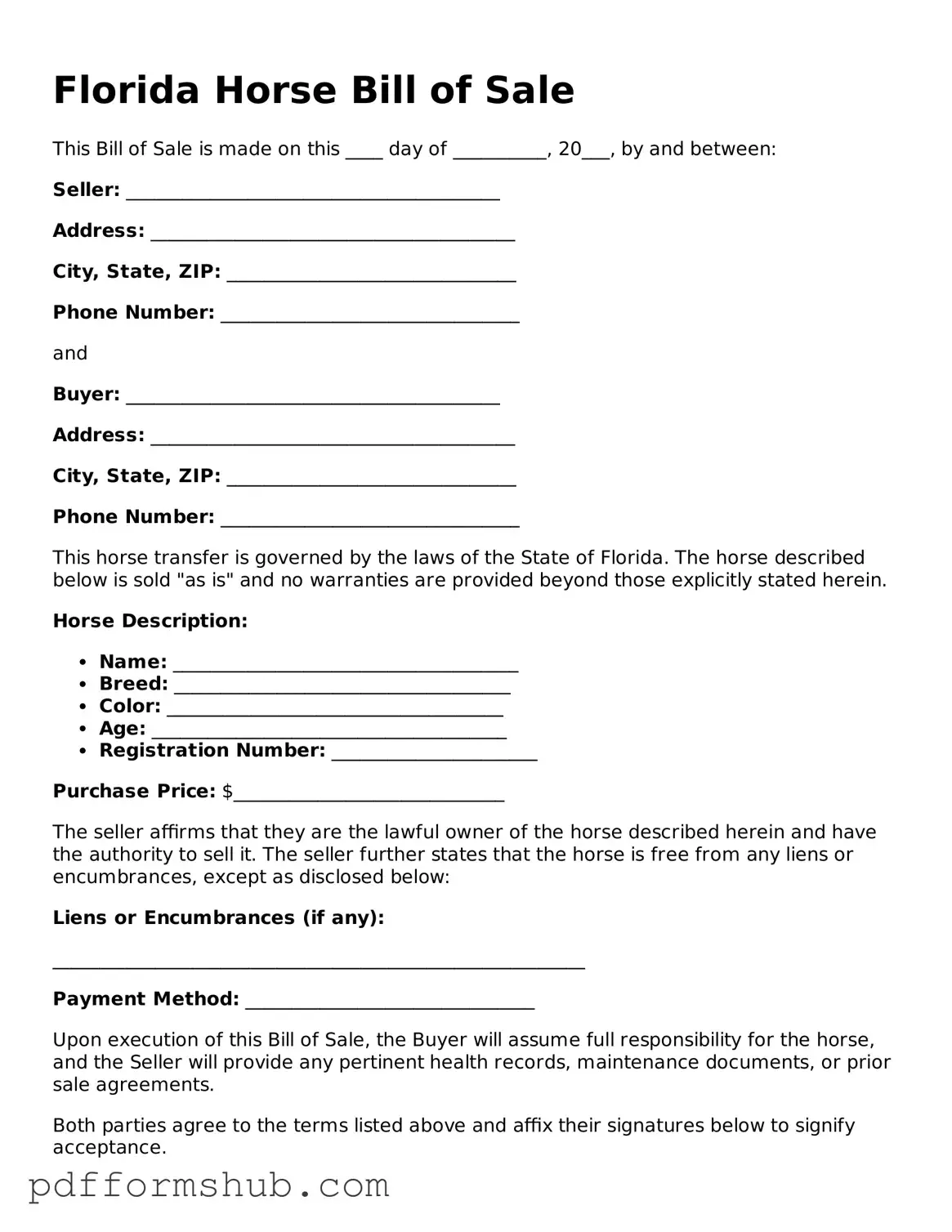Attorney-Verified Horse Bill of Sale Form for Florida State
The Florida Horse Bill of Sale form is a legal document that records the transfer of ownership of a horse from one party to another. This form serves as proof of the transaction, ensuring that both the buyer and seller have a clear understanding of the terms involved. To facilitate this important process, consider filling out the form by clicking the button below.
Customize Form

Attorney-Verified Horse Bill of Sale Form for Florida State
Customize Form

Customize Form
or
Free PDF Form
Short deadline? Complete this form now
Complete Horse Bill of Sale online without printing hassles.